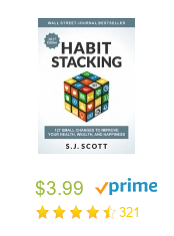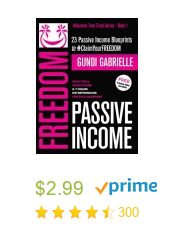
8 Notable Facts About Mortgage Rates And Mortgage Bonds

What You Must Learn About Mortgage Bond, Shows Mortgage Bonds Work
Do you want to buy into mortgage bonds? In case this is a serious consideration, you should first learn everything you can about mortgage rates. That way, you'll get a better understanding of how they work, which will then help you make better investment decisions.
Do you have an adjustable rate mortgage? Some people invest in mortgage bonds because there is a greater chance of obtaining better returns than when investing in stocks. The details below will give you more information about how mortgage bonds and mortgage rates work.

1Mortgage Rates And How They Work
When it comes to mortgage rates, a ten-or thirty-year treasury is not applicable. Mortgage rates do not qualify even if these two types of investments are fixed. Utilizing these rates to calculate mortgages is somewhat similar to tracking the Wal-Mart stock using the Dow Jones average. Certain movements are probably similar, but many are also not.
Still, let us think about the bond price. In case investors have more money at their disposal, equities or stocks are likely to yield more profit compared with bonds. If investors prefer less risk and prefer steady earnings, they are better off choosing bonds. As for mortgages, getting a mortgage bond is often the more prudent choice. There will be regular returns and lower risks than stocks.

2Managing Stocks And Bonds
One smart move by investors during times of slow economic growth is taking money from the riskier stock market and putting these instead in bonds. The bonds' value will increase in time, particularly when a significant number of people is also doing the same thing and purchasing the same bond. In this case, naturally, the price will increase, right? Well, in reality, once bond prices increase, the rates decrease.
The trade-off is simple. You can opt for the lucrative strategy and gamble twenty percent, or you can choose the smaller but more stable bond. To illustrate, let's say that, as of late, the Dow Jones Industrial Average is considered as bearing and losing money, which will propel investors to look at other options. At the same time, a note seller issues $1,000 notes that earn about 5% interest during a preset term.

3How Mortgage Bonds Work
That five percent interest rate is still quite decent considering the present economic condition. As a result, the investors begin purchasing the modest bonds that cost $1,000 per clip. The seller then slowly increases the bond price as demand also increases, and the bonds will cost $1,100 instead of $1,000, while the returns remain constant at 5%. This five percent return is not bad, but there is a certain amount that you also need to pay for.
The increase in price also lowers the interest rate, from 5% to 4.55% perhaps. The process is quite similar to how mortgage bonds work; a price increase causes rates to fall, and some institutional investors do not prefer this. Still, the return is guaranteed. However, there is also a small problem when you do put your money in bonds.

4Mortgage Bonds And Inflation
The value of a bond goes down when there is inflation, which means that its underlying value is reduced as well. Let's say that a certain bond offers a return of $4,000. In case inflation increases to about 10%, the bond will no longer be worth $4,000. There is a 10% reduction in that bond's closing value. This is one main reason why the bond market hurts whenever stocks are stable and strong.
It is also possible to notice a few signs that indicate, that the economy is getting back on its feet. For example, more people will be getting their money from bonds and investing these in stocks. Such actions will actually help in increasing the interest rates of bonds. A flourishing economy will drive demand, and demand pushes prices, and prices influence inflation. When there's inflation, there's a higher interest rate, which in turn drastically reduces the worth of mortgage bonds.

5The Best Time To Opt For Bonds
In general, when bonds go up, it is normal for the stock market to go down. Most investors prefer safer and fixed investment vehicles, like bonds, particularly when the market is not doing well. This also lowers interest rates.
However, there are instances wherein both the stock and the bond market are doing well. When does this happen? At a time when an economic slump is about to end, and the upturn is beginning, a lot of businesses are inspired to borrow more because of the lower interest rates. They use the money to grow their businesses, companies, manufacturing plants or hire more workers.

6A Down Economy Vs. Interest Rates
As the stock market stabilizes, people will be encouraged to start putting their money in more affordable stocks, as they anticipate their value to increase. It probably sounds a little bewildering. But in general, if the economy had been at a lull for some time, interest rates will gradually go down.
People will naturally want to know what's happening to the interest rates, but no one has the answer to that issue. It's also true that long-term trends do develop over time; however, this won't be of any help to those who need to close in thirty days, right? Indeed, the task of predicting how rates will behave is a very difficult job, as it spans not only days but weeks and even months.

7The Uncertainty Within The Market
What will happen to the market in the future? Well, nobody knows, not your broker, neighbor, or even the most renowned investor. Experienced investors do predict how the market will behave, but nothing is ever a hundred percent sure. This is the reality, no one can give you advice about interest rates and claim that they are sure of it; that's just irresponsible.
You should decide, but use whatever information you have gathered since you will be the one closing that home loan. Incorrect predictions won't be devastating in most cases. Nevertheless, in case someone predicts that there will be changes in the interest rates, then ask them to back these forecasts with hard cash. No one will likely take that bet. Also, interest rates can react quite strongly to some reports.

8Time-Sensitive Daily Financial Details
Every day, reports vary and these influence the interest rates in varying degrees. As an investor, it's crucial for you to understand the importance of the effects, of such daily financial information on interest rates. Changes can occur as quickly as just a few minutes after a certain report has been released.
In case the report contains good news as regards the economy, its effect on the bond market will mainly be negative, which then boosts interest rates. In case the report predicts a recession, this will lower the interest rates. All in all, the rates will change either way depending on these monthly reports. In summary, good reports will likely push the rates up.
Now, you understand that it's crucial to learn more about mortgage rates and mortgage bonds before investing in something. Some investors prefer the low-risk nature of mortgage bonds. In case you are still confused about which investment vehicle is the best for you, discuss your options with an experienced broker or an investment professional right away.
About Author
Jackie Wing
GET THE FREE MAGAZINE DELIVERED STRAIGHT TO YOU:









































